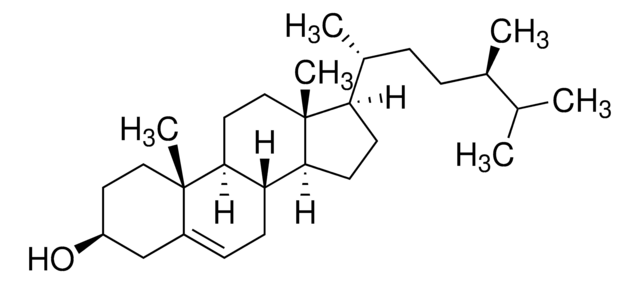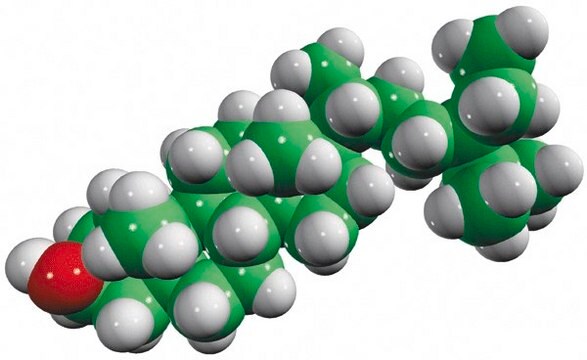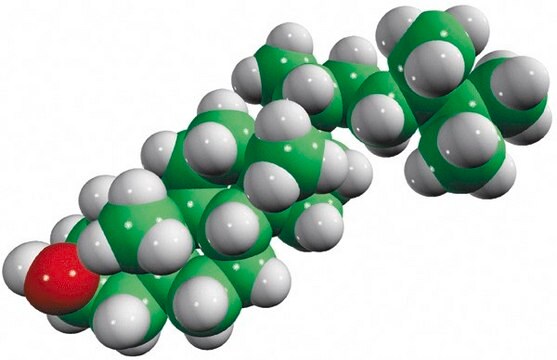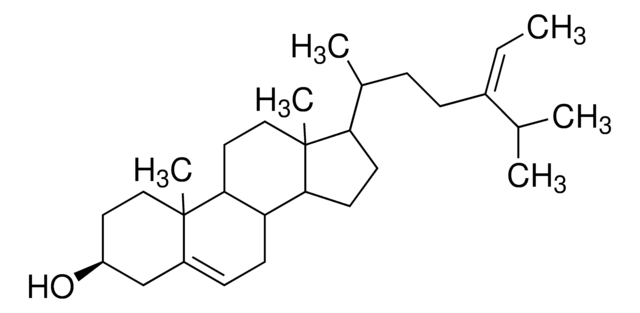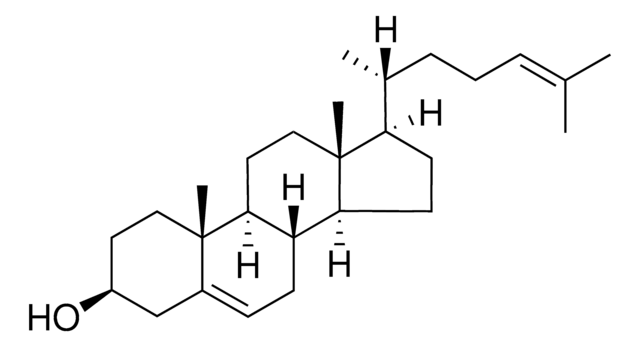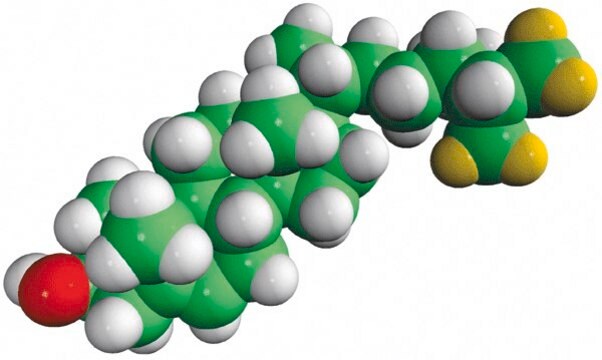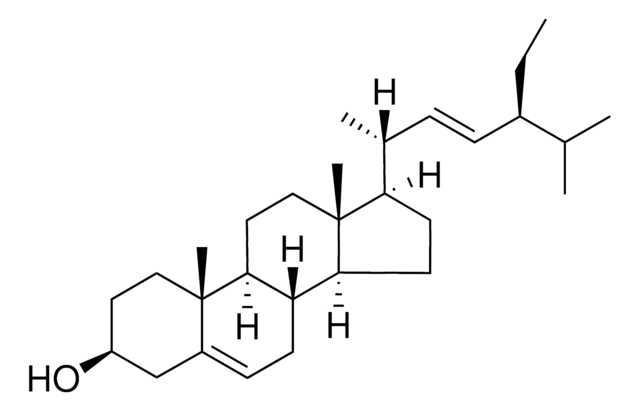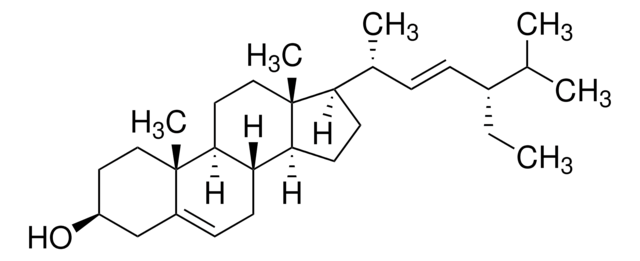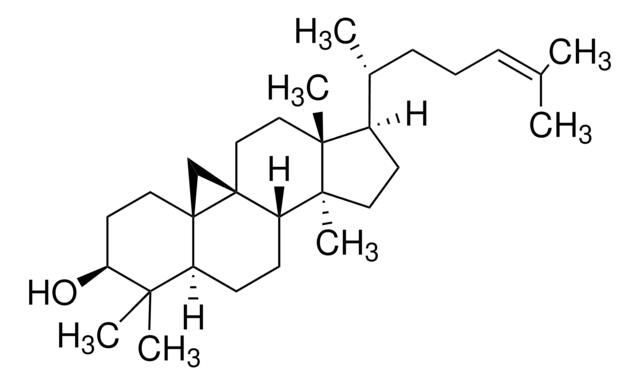700126P
Avanti
campesterol
Avanti Research™ - A Croda Brand 700126P, powder
Synonym(s):
campest-5-en-3β-ol
About This Item
Recommended Products
Assay
>99% (TLC)
form
powder
packaging
pkg of 1 × 1 mg (700126P-1mg)
pkg of 1 × 10 mg (700126P-10mg)
manufacturer/tradename
Avanti Research™ - A Croda Brand 700126P
shipped in
dry ice
storage temp.
−20°C
InChI
1S/C28H48O/c1-18(2)19(3)7-8-20(4)24-11-12-25-23-10-9-21-17-22(29)13-15-27(21,5)26(23)14-16-28(24,25)6/h9,18-20,22-26,29H,7-8,10-17H2,1-6H3
InChI key
SGNBVLSWZMBQTH-UHFFFAOYSA-N
General description
Application
Biochem/physiol Actions
Packaging
Legal Information
also commonly purchased with this product
Signal Word
Warning
Hazard Statements
Precautionary Statements
Hazard Classifications
Acute Tox. 4 Dermal - Acute Tox. 4 Inhalation - Acute Tox. 4 Oral - Eye Irrit. 2 - Skin Irrit. 2 - STOT SE 3
Target Organs
Respiratory system
Storage Class Code
11 - Combustible Solids
WGK
WGK 3
Flash Point(F)
Not applicable
Flash Point(C)
Not applicable
Certificates of Analysis (COA)
Search for Certificates of Analysis (COA) by entering the products Lot/Batch Number. Lot and Batch Numbers can be found on a product’s label following the words ‘Lot’ or ‘Batch’.
Already Own This Product?
Find documentation for the products that you have recently purchased in the Document Library.
Customers Also Viewed
Our team of scientists has experience in all areas of research including Life Science, Material Science, Chemical Synthesis, Chromatography, Analytical and many others.
Contact Technical Service
